Researchers know how you behave at Roskilde Festival
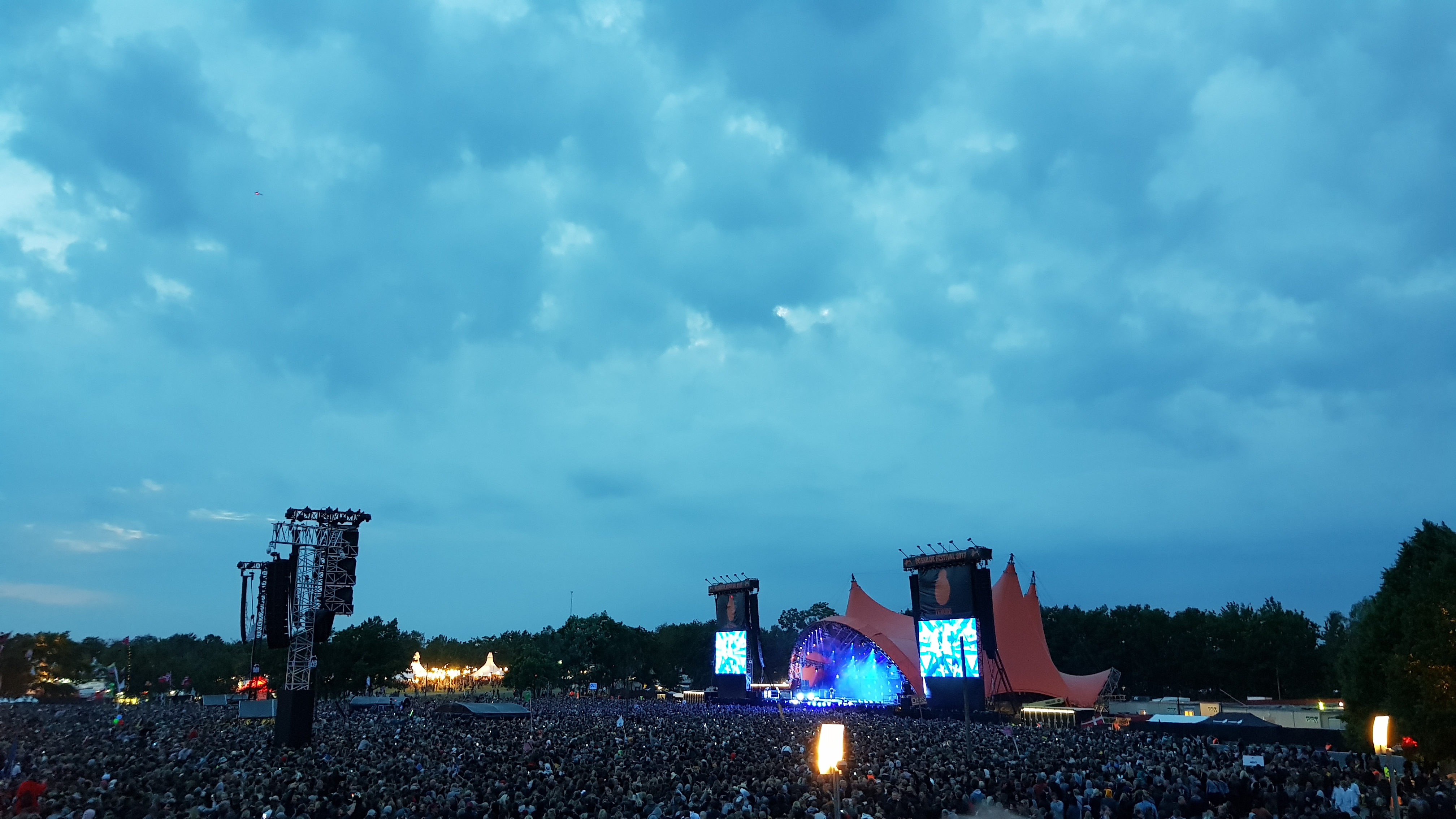
(Photo: Ravi Vatrapu)
Researchers love festivals, as they are like living labs. 14 scientists from CBS are going to this year’s Roskilde Festival to gather data about how much people walk, sleep, their behavior on social media and what they talk about during the festival.
Roskilde Festival is not only attracting teenagers, university students and foreigners. It also attracts researchers.
14 researchers from CBS has gone to Roskilde Festival to harvest some of the data gathered at social media platforms and through apps to get a better understanding of how you and I behave at a festival, and eventually find out how the festival makers can improve the experience.
Since Thursday last week, researchers from the Centre for Business Data Analytic (CBDA)s at the Department of Digitalization have been working at Roskilde Festival setting up their lab with monitors and screens with real time data on how the inhabitants of the festival behave.
“Roskilde Festival is like a living lab similar to a city. The festival area itself including the festival goers are equivalent to the fourth biggest city of Denmark these days,” says Ravi Vatrapu, who is the Director of CBDA and a Professor at the Department of Digitalization and runs seven different social media and GPS data projects at this year’s Roskilde Festival.
Is going to a festival healthy?
Ravi Vatrapu also ran projects at Roskilde Festival in 2015 and 2016 and the main focus this year is on the usages of the festival and the festival goers’ well-being.
“We want to monitor, what people find interesting and relevant to share, and how they feel about it. Are they angry or happy, when they post things? This can be very useful for the festival to know,” says Ravi Vatrapu.
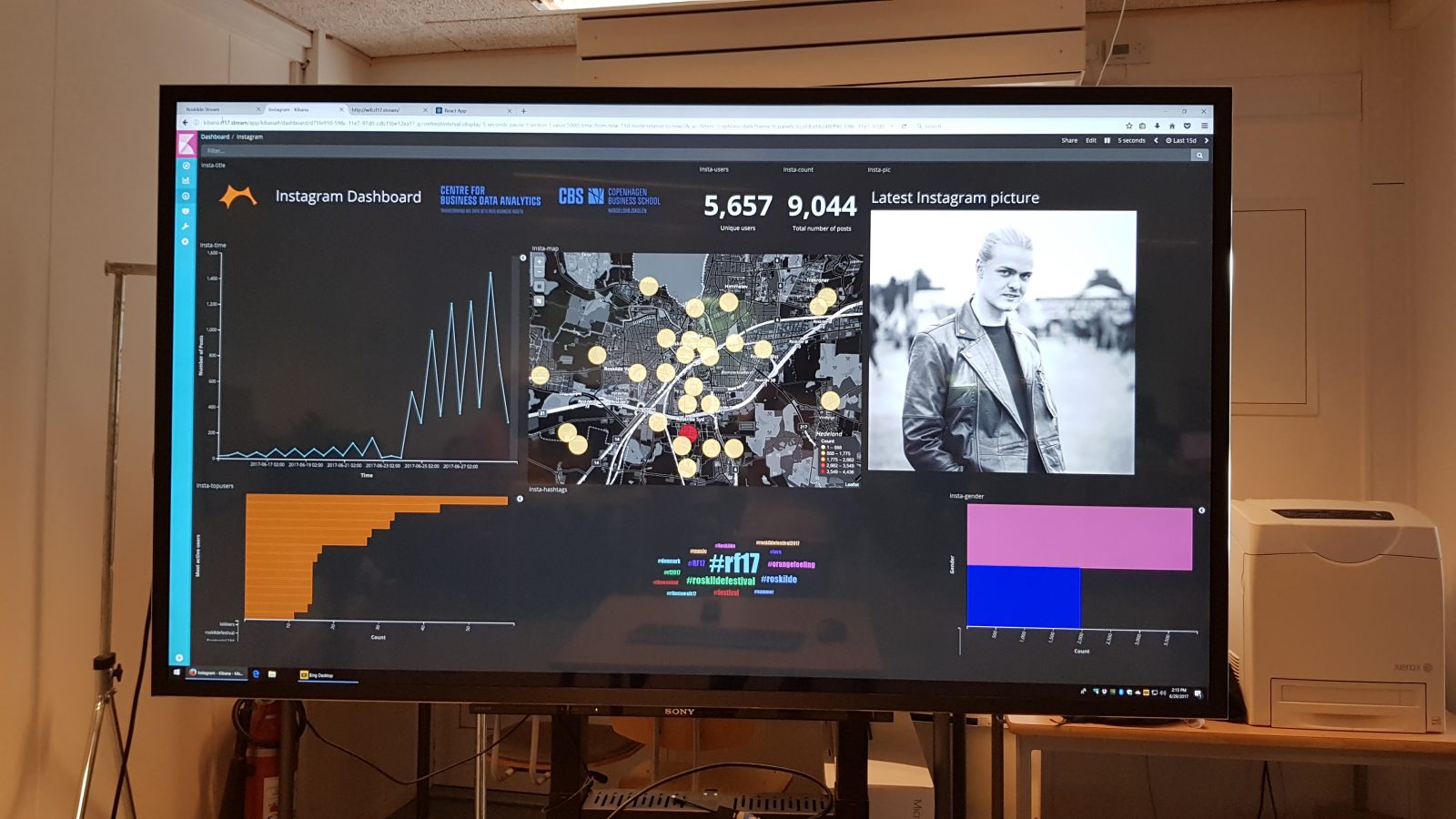
When the guests at Roskilde Festival login to the official Festival app and consent to share their location, the researchers can track the GPS-data and give an estimate of how much people walk and sleep, during the festival. This comes in handy if Roskilde Festival wants to monitor where the guests are going and prevent incidents caused by overcrowding.
“We need to get a better understanding of how people use a festival. Are music festivals in fact healthy in terms of walked kilometers? We don’t know what the hell is going on both physically and digitally. And it’s also interesting for the festival to know such things,” says Ravi Vatrapu and adds that working with the companies running the festival help the researchers to stay focused.
“We want to both contribute with new knowledge to the literature, but working with companies makes the project even more interesting, as it is easy to lose track of the practical relevance,” he says.
Being there gives better data
As the data is online, why can’t the researchers just make the project from their offices at Howitzvej? Did they really have to pack the microwave, a freezer, several large TVs, monitors and servers and get it all to Roskilde?
We don’t know what the hell is going on both physically and digitally
Ravi Vatrapu, Professor at
To some extent, yes.
“Of course, we could have done some of this from Copenhagen. In fact, some of it can be done from anywhere, but it is hard for us to say, whether the data we get is right or wrong, if we are not there to check it ourselves. Was Foo Fighters overcrowded or not, how long are people actually spending in the waiting line to the toilets and such. We have algorithms that can predict these kind of things, but we need to establish the ground truth,” explains Ravi Vatrapu.
Are you going to watch any concerts for yourself?
“I mostly listen to Indian classical music, but I think I’ll go for the Foo Fighters concert. For research that is. We have to participate in the festival, to get the best data,” says Ravi Vatrapu and laughs in the phone from Roskilde
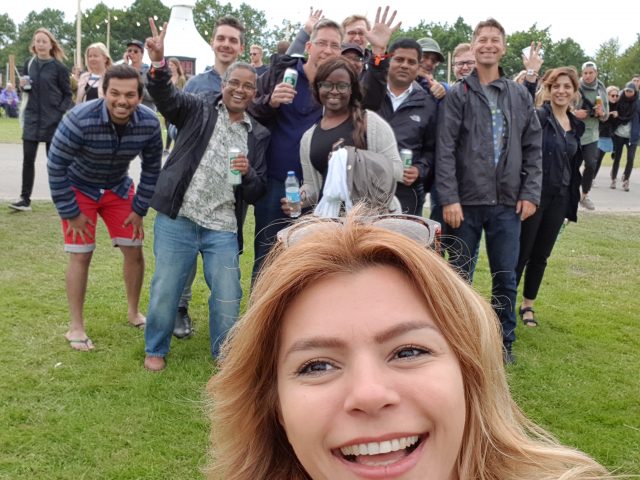
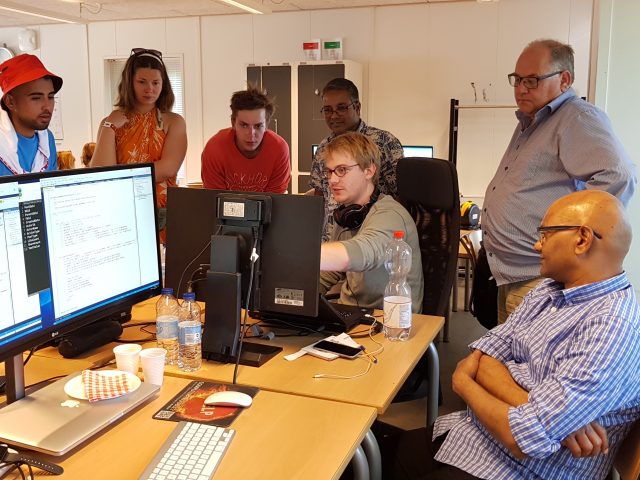
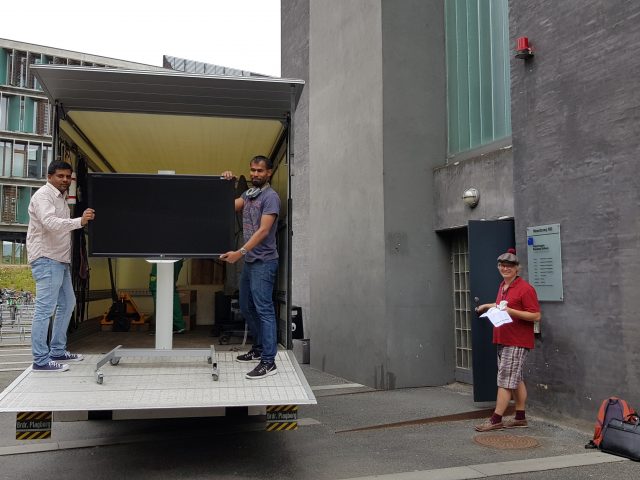
What kind of festival-goer are you?
Ravi Vatrapu’s research team expects to publish four to five scientific papers based on the data from Roskilde Festival, but he also has another thing in mind.
“Maybe for next year we will be able to provide a benchmark so that people can compare themselves to the general population going to Roskilde,” he says and adds:
“Then you could figure out which camp you should be in to get the most sleep, or whether you should just stay in the camp for the entire week to make your own festival, as some do. We could also provide health parameters so people can check, how much they need to sleep and walk to be healthy,” says Ravi Vatrapu and adds that by next year they plan to have about 5 – 6.000 people wearing a Fitbit or such in order to measure their activity level.
“In this way, people can learn so much about their upcoming festival journey based on all this data,” says Ravi Vatrapu.



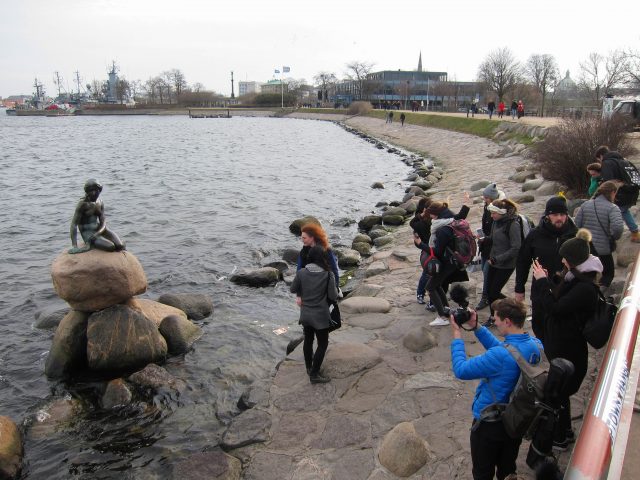





























































































































Comments